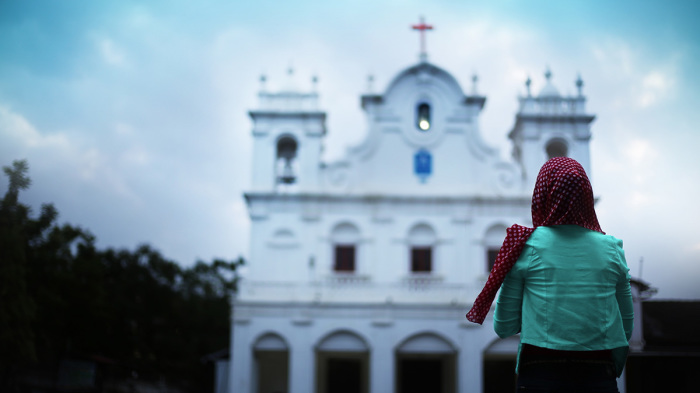
India’s Christian minority fears that the central government might be planning to bring their institutions under state control, following a series of recent developments that suggest the administration and its ideological affiliates are preparing to target church-owned properties.
The fear stems from a now-withdrawn article published in Organiser, the official magazine of the Rashtriya Swayamsevak Sangh — a Hindu nationalist organization closely tied to India’s ruling Bharatiya Janata Party. The article claimed the Catholic Church is India’s largest non-governmental landowner, managing more land than the Muslim “Waqf Board.”
In India, a Waqf Board is a statutory authority that manages properties legally designated by Muslims for religious, charitable or educational use. Once a property is declared as waqf, its administration is legally transferred to the Board, which oversees its use and ensures it serves community purposes.
The article came earlier this month, just days after the Indian Parliament passed an amendment tightening government control over Waqf properties. The law permits non-Muslim board members for the first time ever, restricts how properties can be donated, and restructures the boards’ legal authority.
Many in India’s Muslim minority community view it as a direct assault on religious autonomy. Now, Christian leaders and political observers worry that the same logic — and legal framework — could be used to justify interference in Christian institutions.
The Organiser article alleged that the Catholic Church owns about 70 million hectares (around 173 million acres) of land in India — far exceeding previous public estimates — and claimed that this land was largely obtained during British rule.
It cited a 1927 British colonial law, the Indian Church Act, as enabling mass land transfers to Christian churches. It also accused Christian schools and hospitals of using free services to pressure the poor into converting to Christianity.
Historians and legal experts have pushed back against these claims. The 1927 law reorganized Anglican structures in colonial India but did not grant land, nor did it apply to the Catholic Church.
In reality, most church-owned land was obtained through individual donations, purchases, or leases — both before and after British rule. Moreover, allegations of forced or coerced conversions remain unproven and are often used in Hindu nationalist rhetoric to demonize and attack the Christian minority.
Rahul Gandhi, a senior leader in India’s main opposition party, the left-of-center Indian National Congress, warned that the Waqf law has set a precedent for state interference in minority-run institutions. He said the focus on Christian landholdings appears to be a continuation of an agenda to weaken the autonomy of religious minorities.
Pinarayi Vijayan, the chief minister of Kerala — a state with a significant Christian population — called the RSS campaign an example of “gradual and systematic targeting” of minorities. He urged secular political parties to resist what he described as a deliberate campaign to marginalize non-Hindu communities.
Similar warnings came from other political quarters.
Uddhav Thackeray, a regional leader in western India and former chief minister of Maharashtra state, said the BJP is now eyeing the assets of Christians, Jains, Buddhists, and even Hindu temples — alleging that the party plans to redistribute prime land to politically connected corporations, as reported by The Hindu.
The BJP has defended the new Waqf law as a reform to improve transparency and has claimed support from some Christian organizations.
Meanwhile, at a meeting convened in New Delhi by the Catholic Bishops’ Conference of India in December, a group of Opposition Members of Parliament who are Christian had urged the Church to publicly support the Muslim community in their opposition to the contentious Waqf amendment, according to The Indian Express. They called on the CBCI to take a principled stand in defense of minority rights guaranteed by the Constitution.
As of the 2011 census, India’s population was about 1.21 billion, with Muslims constituting about 14.2% (around 172 million) and Christians about 2.3% (roughly 28 million) of the population.

















